#NADA
Report: Ford Vows Better Dealer Engagement, NADA Attendees Vexed
Last week, Ford CEO Jim Farley asked a group of dealers for some open and honest feedback while promising to spend the next few weeks visiting showrooms. The point was to create a conversation between the automaker and dealerships that have grown annoyed with some of the changes Ford has been asking them to make. However, the latest from the North American Dealers Association (NADA) meeting makes it sound like the relationship may still be dicey.
Dealers' Associations Ask Courts to Block FTC's Ban On Hidden Fees
While most car dealerships are honest, legitimate businesses, some don’t hold their customers in such high regard, charging more than they should without the right disclosures about what the fees are for. Hidden fees aren’t just annoying and shady, though, they can be very expensive, and last year, a Federal Trade Commission ruling aimed to shut the practice down.
The National Automobile Dealers Association protested the decision, joining the Texas Auto Dealers Association in filing a petition in the Fifth Circuit Court of Appeals, leading to a pause on the FTC's rule.
Car Dealers Cheesed Over FTC's Proposed Rule Changes
Federal Trade Commission (FTC) has proposed comprehensive rules changes regarding dealership advertising and how finance and insurance offices are handled. However, dealers, specifically the National Automobile Dealers Association (NADA), aren’t happy with these new ideas and have issued formal challenges to the regulatory scheme.
NADA Wants to Stop Catalytic Converter Theft
The National Automobile Dealers Association (NADA) and a dozen related trade groups are petitioning Congress to crack down on stolen catalytic converters. The emission control devices are loaded up with valuable metals and are relatively easy to steal if you’re slim enough to get beneath a parked car and happen to have a reciprocating saw handy — making them prime targets for cash strapped criminals, especially now that material prices are on the rise.
Cities across the country have reported an increase in catalytic converter theft this year. While a majority of police departments are estimating a year-over-year increase of under 40 percent, some have said their figures are substantially larger. In March, Las Vegas Police Department estimated there were 87 percent more vehicles with hacked apart exhaust pipes in 2022. Philadelphia was even higher, reporting a staggering 172 percent increase in dismantled exhaust systems.
Dealers Annoyed With Price of EV Charger Installs
As the industry continues struggling with its planned swap to electric vehicles, we’ve seen plenty of framing suggesting dealer networks are only too happy to participate. But it’s usually juxtaposed with articles indicating that pushback exists, typically whenever the metaphorical rubber meets the road. This month provided several premium examples stemming from the National Automobile Dealers Association Expo (NADA Show 2022) held at the Las Vegas Convention Center.
Though the best had to be when several dealer groups piped up about how much it’s actually going to cost them to install some of the newer chargers some manufacturers believe should be mandatory if they’re intent on selling EVs. Some showrooms are finding out that not all buildings are wired for the high loads incurred by modern charging systems, requiring additional financial investments they hadn’t counted on. With automotive dealerships using product delays as leverage for unprecedented vehicle pricing, it’s nice to see them getting a taste of their own medicine. Or it would be if the costs for updating facilities weren’t guaranteed to be reflected on future window stickers.
Early 2022 Auto Sales Forecasts Are Disheartening
After a tough couple of years, consumers went into 2022 hopeful that unhinged automotive pricing and lean dealer lots would be a thing of the past. However, analysts and industry groups have gone from being cautiously optimistic just a few weeks ago to fairly sullen about the prospects of North American shoppers locating anything that could be considered a square deal.
Goldman Sachs recently issued a report that attempted to encapsulate the whole picture, citing sustained congestion at the ports, pandemic-related factory closures, market inflation, millions of people just dropping out of the workforce, and continued complications stemming from the semiconductor shortage. It estimated that vehicle pricing would fail to go down — and may even pitch up in the first half of 2022 — until all of the above issues have been addressed. But it was hardly the only group chiming in or suggesting that the hard times could last through 2023, as the goalpost for what should be deemed acceptable is moved yet again.
Auto Dealers Report 2021 Profits Will Break Previous Record
With so many articles discussing how poor automotive sales have been through 2021, one could be forgiven for thinking this was going to be a hard year for anybody owning a dealership. However, the reality of the matter is that it’s a seller’s market and those who can sell are making a killing off everyone else’s misery.
The National Automobile Dealers Association (NADA) has reported that the ongoing deficit of product has helped the average store rake in more money than they did in 2020, breaking the previous twelve-month profitability record. Today’s average dealership is reporting a net pretax profit of about $3.38 million through October for 2021. That’s more than twice what was tallied within the same timeframe last year and really goes to show how much money can be made when the customer’s needs are the only items being discounted.
National Automobile Dealers Association Elects New Chairs
The National Automobile Dealers Association (NADA) has elected Mike Alford as its chairman for 2022. The decision was announced shortly after the group’s board adjourned on Tuesday.
Alford — who heads Marine Chevrolet Cadillac in Jacksonville, North Carolina — currently serves as NADA vice chairman and will be taking over for Paul Walser next year. Geoffrey Pohanka was chosen as the vice-chair, setting him up as a strong contender for the top position in 2023.
NADA Chairman Doesn't Seem to Like Traditional Auto Dealers Much
Unless you happen to be the primary stakeholder in Amazon, 2020 probably hasn’t’ been the kind of year you’re likely to miss. However, there is no shortage of lobbyist groups and trade organizations willing to praise it as a triumphant time for modernity. This includes the National Automobile Dealers Association (NADA) Chairman Rhett Ricart, who believes digitizing the industry is the best pathway forward. While he hasn’t forgotten that pandemic-related lockdowns closed showrooms and factories, resulting in extremely lean inventories and weak sales, he claims it has accelerated everyone’s willingness to utilize online sales formats.
But there’s little reason to assume such a move would be better for dealerships from our vantage point. Haggle-free, direct pricing and ordering over the internet removes a lot of what the showroom does. This new model runs the risk of obliterating smaller storefronts and relegating the rest into glorified service centers doubling as a delivery hub.
NADA Expands Diversity Quotas, Implements New Equity Programs
The National Automobile Dealers Association (NADA) has announced a decision to strengthen diversity quotas by dividing the country into three distinct regions and passing a bylaw amendment that expands the number of at-large seats reserved women and ethnic minorities — moving both from two to three positions.
While the organization had been discussing the matter all summer, with CEO Peter Welch telling NADA members racism and discrimination had “no place in the car business” and needed to be “rooted out,” it has also begun making moves that support new inclusion and equity programs. Roughly 41 percent of the NADA employees are women at present, with another 20 percent representing minorities. But Welch said the group could and should strive to improve those numbers.
NADA to Become Virtual Event Next Year
The National Automobile Dealers Association (NADA) has decided to go digital to combat the coronavirus pandemic, canceling plans for what would have been an in-person event held at the end of January. Plans now include a virtual, mid-week conference starting on February 9th, which organizers agree will be far better than a bunch of people enjoying themselves at the Ernest N. Morial Convention Center in New Orleans over a long weekend.
Truth be told, there wasn’t much of a decision to be made. New Orleans may have decided it’s ready to open up restaurants, retail outlets, and giant shopping centers to the public but trade shows and bars have proven themselves bridge too far. While locals have accused the city of using COVID-19 as an excuse to gentrify certain areas of the city, drunks have a penchant for forgetting social-distancing rules. NADA would have brought in thousands of dealers and vendors, many of whom would be engaged in frequent bouts of close-range talking between beers. That’s to say nothing of the forbidden romantic entanglements (cheating) your author is just going to assume happens.
Automotive Retail Jobs Are In Rough Shape
Having already pulverized the dead horse of waning auto sales into a fine paste, we’ll now turn our focus on how it’s impacting employment among automotive retailers — squashing another pony.
Much of the information up until this point has been anecdotal and conditional to the North American response to COVID-19. Furloughs were rampant as the pandemic progressed and new safety rules seemed poised to cripple sales moving forward. There was an obvious general plight confronting automotive retailers, but we couldn’t nail down what that meant in terms of job losses.
We still don’t, frankly. But it is starting to become obvious that there isn’t much reason to be exceptionally optimistic. AutoNation recently announced that around half of the 7,000 workers it furloughed in April won’t be coming back. Despite some retailers claiming not to need such drastic cuts, plenty are following AutoNation’s model. With fewer customers and sweeping restrictions on how showrooms can be operated, there’s little reason for there to be all hands on deck. But just how many will be forced to abandon ship this year?
U.S. Auto Dealerships Ask Trump If They Can Stay Open Amid Outbreak
Like every other business in the United States, auto dealers are attempting to implement changes that would allow them to operate safely amid the coronavirus outbreak. Undoubtedly petrified by the massive hit the Chinese car market took after COVID-19 reared its ugly head in Wuhan, they also hope to remain open while other business stay closed.
On Tuesday, the National Automobile Dealers Association (NADA) and Alliance for Automotive Innovation (AAI) issued a formal letter requesting that President Trump consider dealerships and service centers as “essential operations when federal, state, and local officials impose certain requirements due to the coronavirus outbreak.” While we’ve already seen dealerships embrace new tactics to comply with public health initiatives, it’s assumed they’ll be shutting down just, like most automakers plan to. However, retailers worry their diminutive cash reserves (in relation to manufacturers) won’t see them through a prolonged shutdown while the broader industry wonders who will repair automobiles during the pandemic.
American BMW Dealers Prioritize Product, Ask for Wagons
BMW had a decent 2019, besting historic rival Mercedes-Benz with 324,826 U.S. deliveries — a 4.4-percent improvement over the previous year. The brand expects more good news in 2020 as new product begins to hit its stride and more models start arriving. While the company currently enjoys an almost even sales breakdown between cars and crossovers, BMW National Dealer Forum Chairman Patrick Womack said its Westernmost offerings could be further refined.
U.S. dealers want a sumptuous German wagon to compete with European marques already providing one.
Dealers Forecast Modest Sales Decline in 2020
The National Automobile Dealers Association (NADA) released its annual new-vehicle sales forecast for 2020, estimated a modest decline in U.S. volume. The announcement dropped on Tuesday, citing rising transaction prices as the probable cause. With fewer sedans on the market ( especially among domestic automakers), customers are shifting to crossover vehicles with higher price tags. Fortunately, the United States’ economy has remained roughly as stable as the cost of fuel — avoiding market conditions that normally encourage customers to swap into affordable economy cars or simply hold onto their current ride.
“We expect new light-vehicles sales will come in at 16.8 million units for 2020, roughly a 1.2 percent drop from 2019 sales volume,” NADA senior economist Patrick Manzi explained. “As for 2019, it appears new vehicle sales will best the expectations of most in the industry by topping 17 million units for the fifth straight year.”



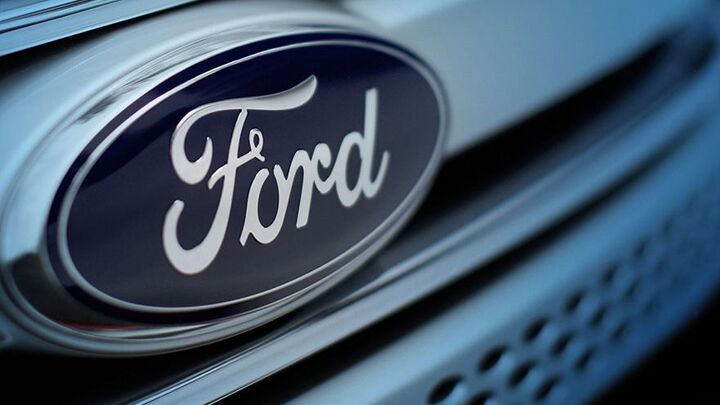


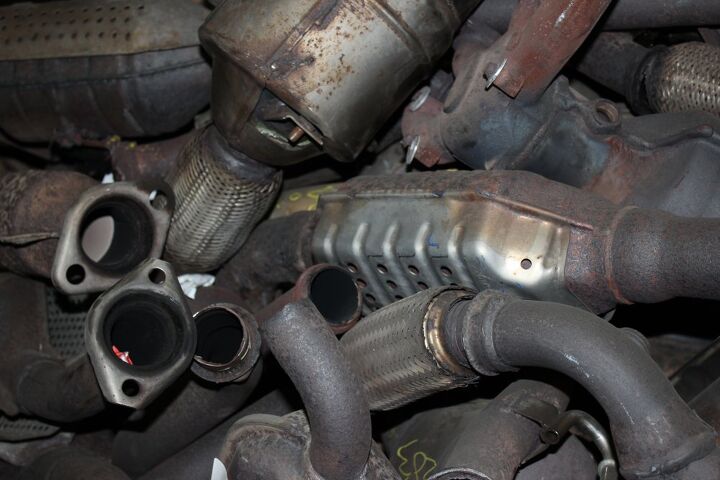
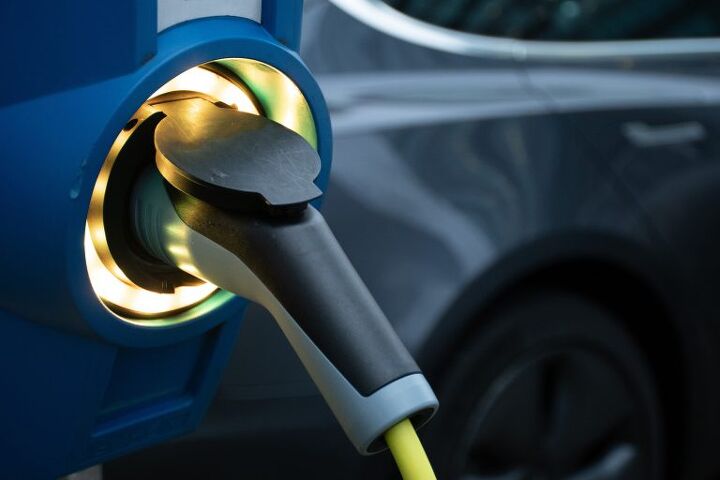
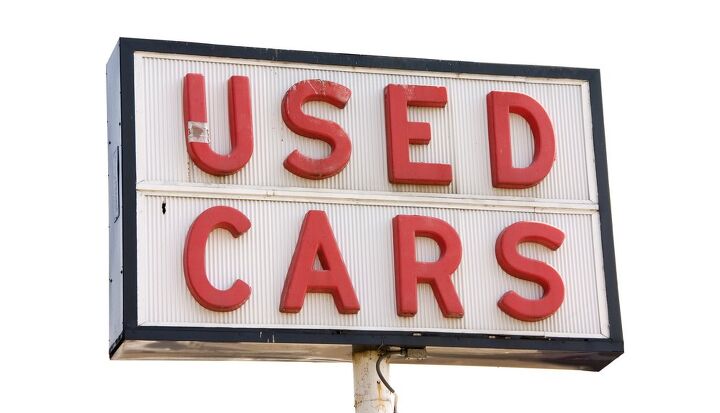

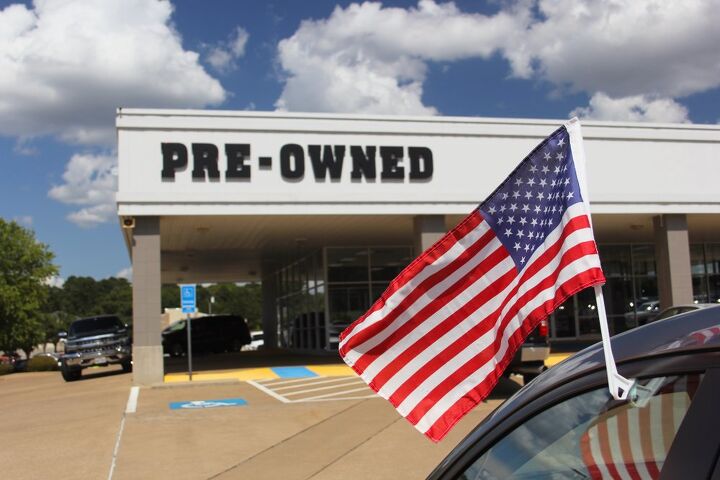



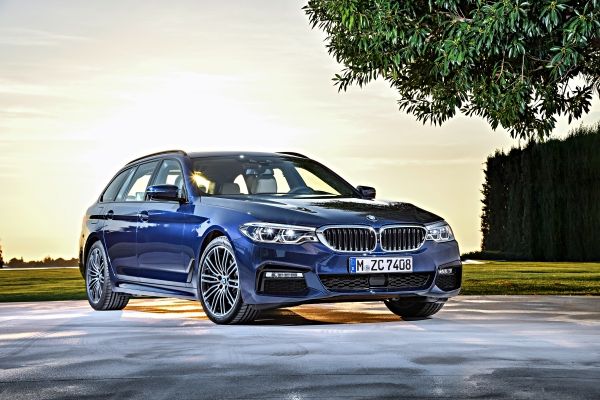
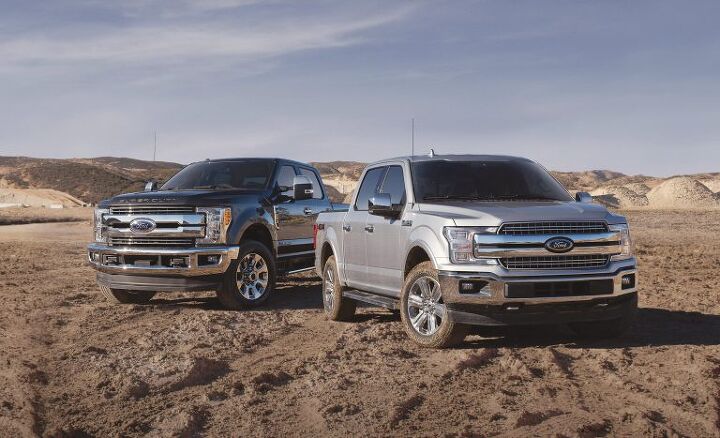












Recent Comments